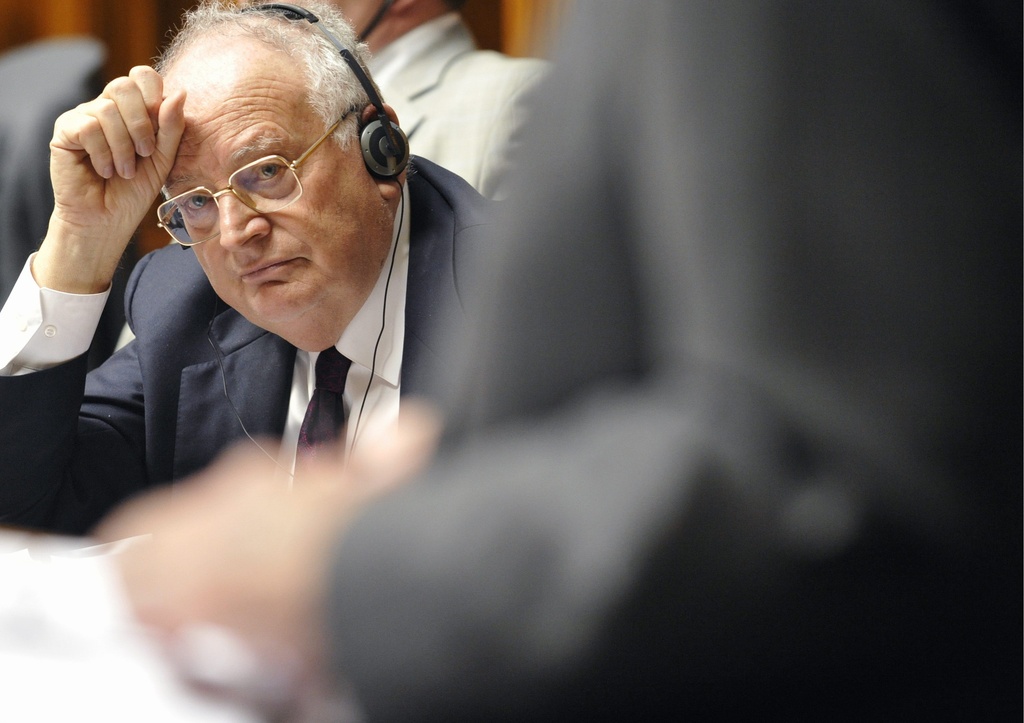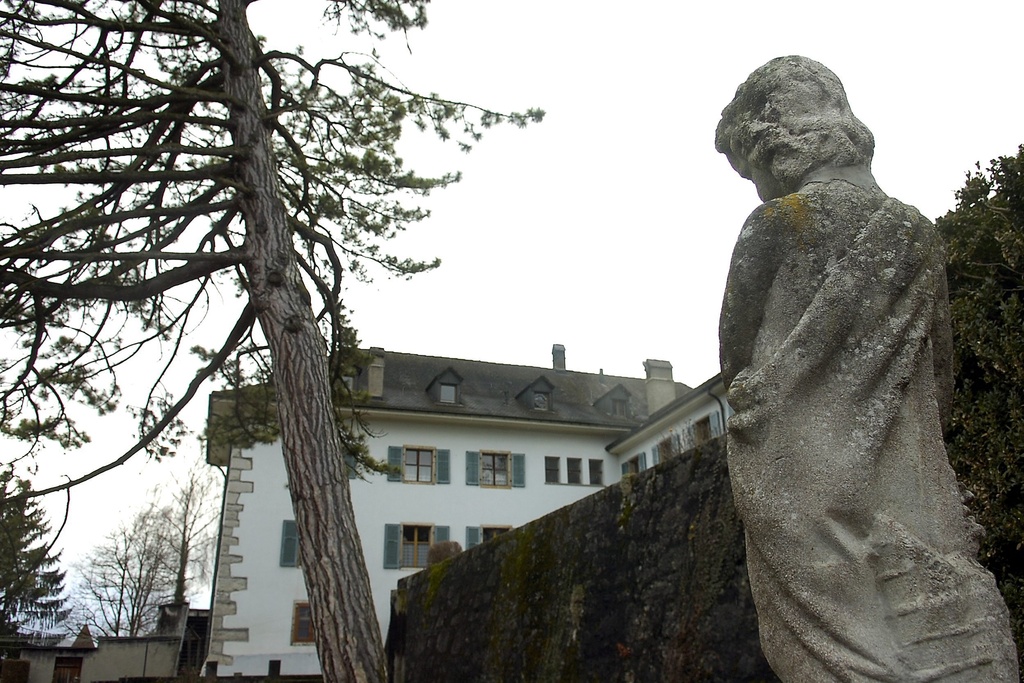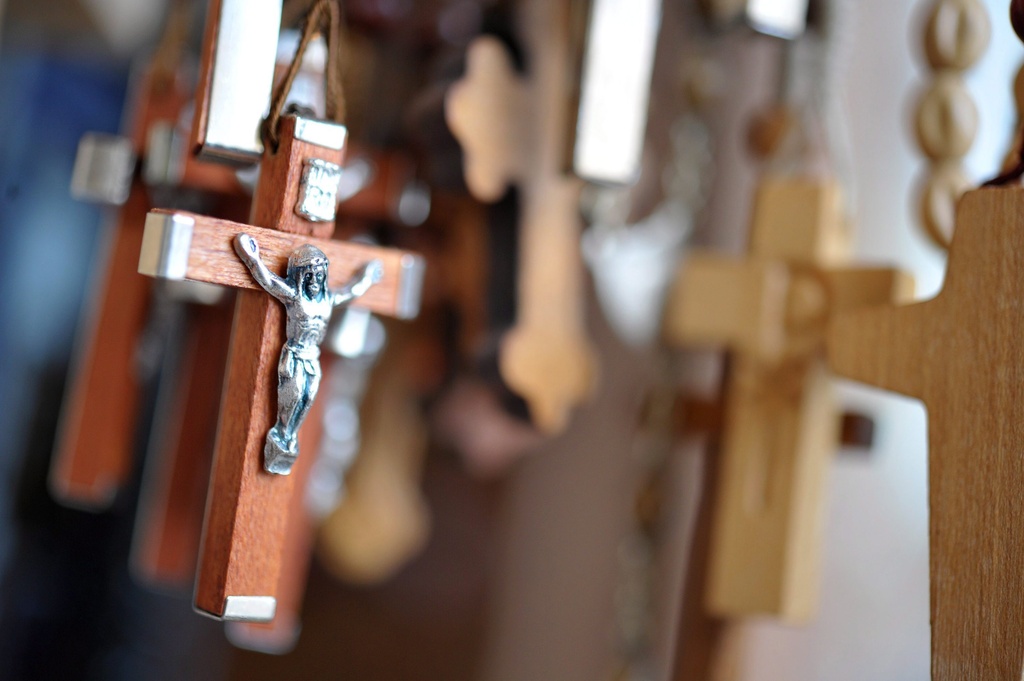“Church tried to wash dirty laundry in private”

The Swiss Bishops Conference may have held its hands up over the handling of paedophilia cases, but a Christian Democrat says leaders must take a harsher stance.
Jacques Neirynck, a parliamentarian with the centre-right party, tells swissinfo.ch religious perpetrators of such crimes should be reported to the civil justice authorities and expelled from the Church.
The Catholic Church’s paedophilia problem has taken on new dimensions in recent days as revelations of abuse have multiplied, forcing church authorities all the way up to Pope Benedict XVI to respond.
In Switzerland, the cases have generated much publicity, with the latest episode unfolding on Wednesday, when the bishops conference admitted it had “underestimated” the situation and urged victims to step forward and lodge legal complaints.
Neirynck, a writer and practising Catholic, says the Church, faced with such a situation, must now take serious steps to right its wrongs.
swissinfo.ch: What is your reaction after the Swiss Bishops Conference declaration about sexual abuse committed by priests?
J. N.: The focus remains a bit too much on forgiveness and grief. I would have preferred the bishops conference to be clearer and announce more concrete measures.
The culprits should be excluded from the clergy and bishops should be required to report cases to the civil justice. But there is no mention of these two measures in this statement.
swissinfo.ch: The Church is caught up in a real storm. Should we wait until it passes or is it extremely serious this time?
J.N.: It won’t pass. A few years ago several hundred cases were uncovered in the US and now the scourge is worldwide. It is a general phenomenon.
Now, we must know where the problem lies. The problem is not whether there are paedophile priests: there are, just as there are doctors and gym teachers who are paedophiles. The real scandal is the cover-up of these cases by the bishops.
swissinfo.ch: These accusations are not new, but wasn’t anything done to prevent this from happening again?
J. N.: On Palm Sunday, Pope Benedict XVI issued a letter in which he expressed regret over the matter and asked for forgiveness. But that’s not what people are waiting for. They want the facts, action and especially a policy within the Church so that this does not happen again.
Such a policy, in my opinion, has three parts. First, all cases must be disclosed to the civil justice system. Once a perpetrator is actually found, the second step should be his expulsion from the clergy. The third is that a bishop cannot in any way conceal these facts from the police. If he does – or did – he must resign.
swissinfo.ch: Transparency has never been the Church’s strongpoint…
J. N.: No, because it is a reminder of the days when there was a civil and ecclesiastical justice. But that is over. Ecclesiastical justice has no way of forcing witnesses to testify.
But if the Church tried to wash its dirty laundry in private, it was for reasons other than to cover up cases of paedophilia. It was to conceal a general attitude within the Catholic Church in regard to sexuality and women. That is problematic.
swissinfo.ch: Is the question of celibacy significant in this case?
J. N.: There is no proven relationship between clerical celibacy and paedophilia. We have no statistics. What we simply note is that there are apparently many fewer cases among rabbis, pastors and imams.
We also know that the vast majority of child abuse cases occur within families. So there is no relationship between the two, at least proven. However, reading articles on the subject, public opinion ends up forming the equation that all priests are paedophiles and all paedophiles are priests. But these two propositions are completely false.
swissinfo.ch: There’s been no shortage of criticism of the pope in the paedophilia debate. What do you think about that?
J. N: There was an extremely serious accusation that relates to his role as well as archbishop of Munich. It seems there were very serious cases in his diocese that he did not report to civil authorities. This is an extremely serious mistake.
There is also a much broader rebuke. As prefect of the Congregation of the Doctrine of the Faith, he received the denunciations of the entire world. He could have acted at that time. Obviously he did not. In any case, he did not give the bishops orders, namely a handover to civil justice and the systematic expulsion of the guilty priests.
swissinfo.ch: In Switzerland, bishops seem more willing to report cases of child molestation. Is there something special about the Swiss Church?
J. N.: The Swiss Church is nothing special. It is organised like the others. But there is no archbishop in Switzerland. The presidency of the Swiss Bishops Conference rotates between several bishops. It is therefore a church that is deeply steeped in democracy, politics and everyday life.
swissinfo.ch: In the Swiss Church, there are differences among the bishops about the establishment of a list of paedophile priests. Is such a list useful?
J. N: The abbot of Einsiedeln defends the idea of the list, since he admitted that seven of his monks have committed such acts. He did not say whether they were expelled or not. Once you start keeping people who have committed serious mistakes, it is obvious that you need a list of their names somewhere so that they be kept out of functions where they encounter children.
On the other hand, the chairman of the Swiss Bishops Council believes that this will not help. But I think the idea is already accepted among most Swiss bishops that every priest who has committed this crime should be expelled automatically. Therefore, it is useless to make a list of people who are no longer priests.
Claudinê Gonçalves, swissinfo.ch (adapted by Tim Neville)
Jacques Neirynck was born on August 17, 1931 in Uccle, Belgium.
He studied electrical engineering at the Catholic University of Louvain, where he earned a doctorate in applied sciences in 1958.
He taught electronics at the University Lovanium Kinshasa, Zaire.
In 1972 he was appointed professor chairman of the Circuits and Systems department of the Federal Institute of Technology in Lausanne (EPFL), where he is still professor emeritus.
Long active in the field of consumer protection, he entered politics among the ranks of the centre-right Christian Democratic Party. He served in the House of Representatives from 1999-2003, and after a hiatus of four years was re-elected in 2007.
Neirynck is also well known for his literary talents. In addition to a 22-volume treatise on electricity, he has written books on economics as well as crime novels and historical fiction.

In compliance with the JTI standards
More: SWI swissinfo.ch certified by the Journalism Trust Initiative













You can find an overview of ongoing debates with our journalists here . Please join us!
If you want to start a conversation about a topic raised in this article or want to report factual errors, email us at english@swissinfo.ch.